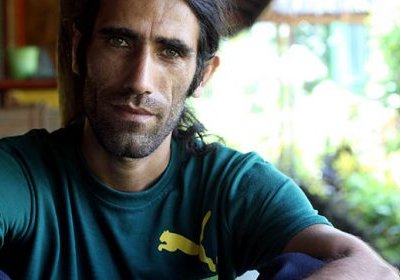Nilüfer Koç, the foreign affairs spokesperson of the Kurdistan National Congress, addressed a conference on the 1923 Treaty of Lausanne and its consequences for the Kurdish people. Peter Boyle reports.
Behrouz Boochani
While good reporting helps us to be aware of, and understand current events, social change is a long-term endeavour that requires imagination, vision and deconstruction of the status quo. This forum explores the vital role of storytelling.
Human rights organisations and Kurdish-Iranian refugee activist Behrouz Boochani have condemned Labor’s new racist anti-asylum seeker laws. Chloe DS reports on the community outcry.
Behrouz Boochani, Kurdish refugee, author and activist, will be the keynote speaker at the Rural Australians for Refugees national conference in Kyneton, Victoria, from October 11–13. Jonathan Strauss reports.
Boat turn-backs. Offshore Detention. Refusal to settle groups of refugees in Australia. This triad is the 10-year-long contemporary White Australia policy of governments, Labor and Coalition. Jonathan Strauss argues for the need to step up the pressure.
Refugees and their supporters have called a major rally in Canberra on March 6 and around the country on April 2. Labor's “resolution of status” permanent visa does not go far enough, argues Jonathan Strauss.
Kurdish-Iranian activist, author and film producer Behrouz Boochani discusses his latest book and Australia's refugee detention regime.
Kurdish Iranian journalist Behrouz Boochani launched his new book at UNSW, telling a packed-out audience that thousands of refugees are still in limbo. Niko Leka reports.
The Australian Financial Review has revealed that the federal Coalition government awarded a $423 million security and cleaning contract for three Manus Island refugee detention centres to Paladin Group, a company that, at the time, was registered to a Kangaroo Island beach shack.
No Friend but the Mountains, written by Kurdish journalist and human right activist Behrouz Boochani who has been jailed on Manus Island since 2013, stands out among the genre of prison literature.
Another person who came to Australia seeking safety and security died on Manus Island on May 22. The Rohingya man is the seventh person to die on Manus Island since Labor re-established offshore detention.
The man died after jumping out of a bus — it is being reported as a suicide. Doctors for Refugees had been calling on the government to bring him here for more than a year as he suffers from epilepsy.
Iranian-Kurdish journalist and refugee Behrouz Boochani has been detained on Manus Island for almost five years. The theme of home in the Asylum Seeker Resource Centre’s campaign to Change the Policy was inspired by Behrouz, whose vision of home is “humanity”.
- Page 1
- Next page










